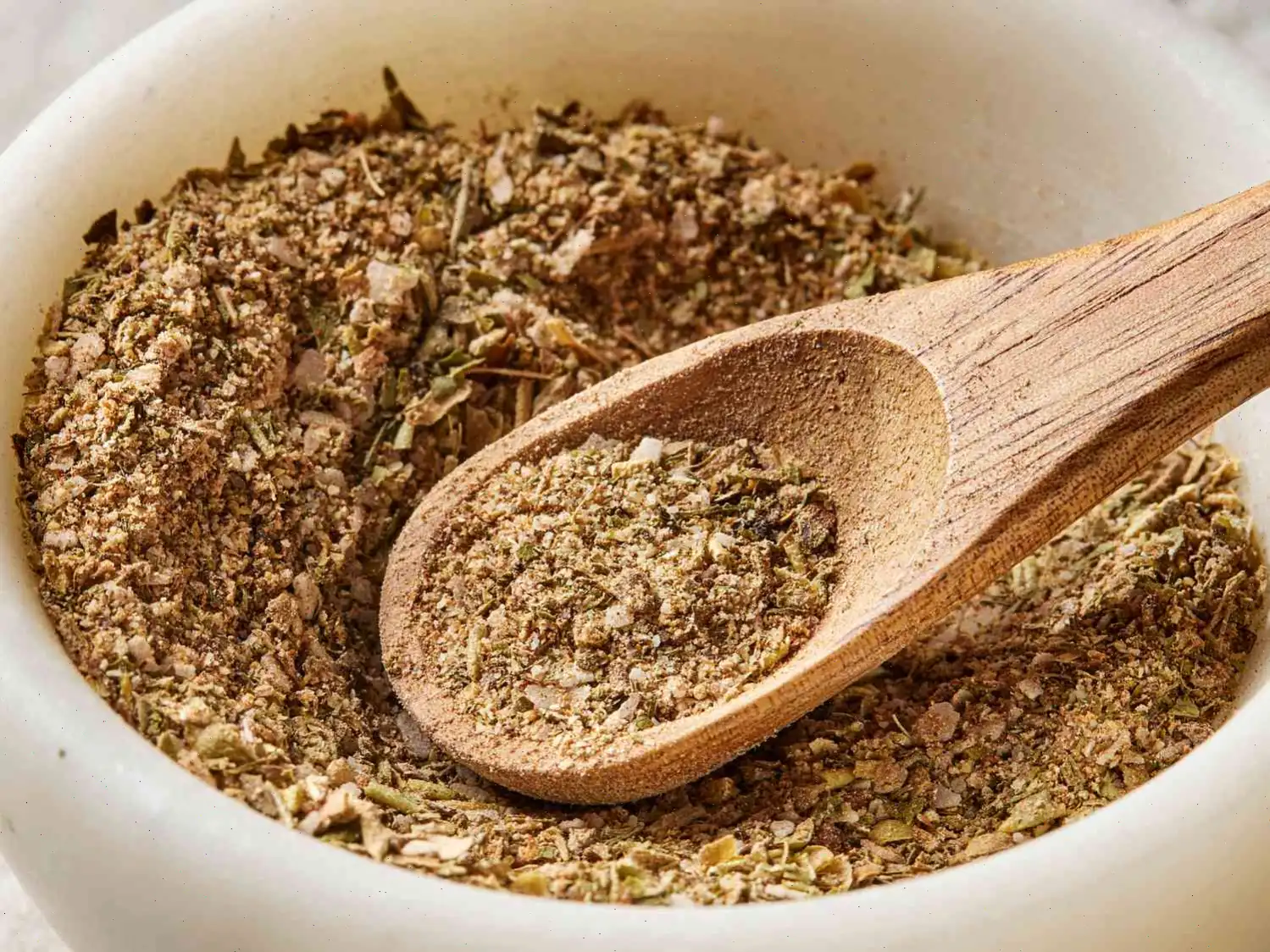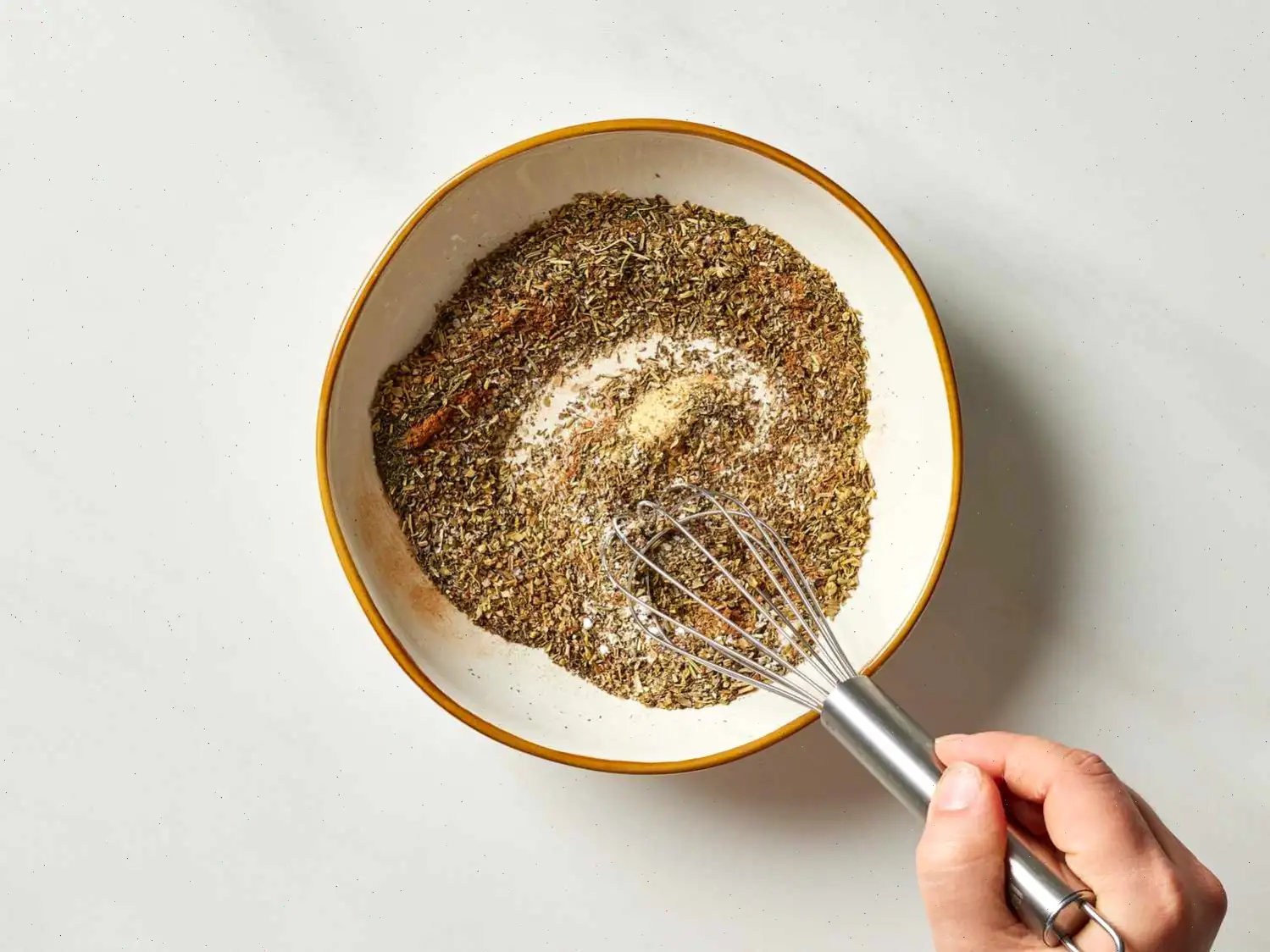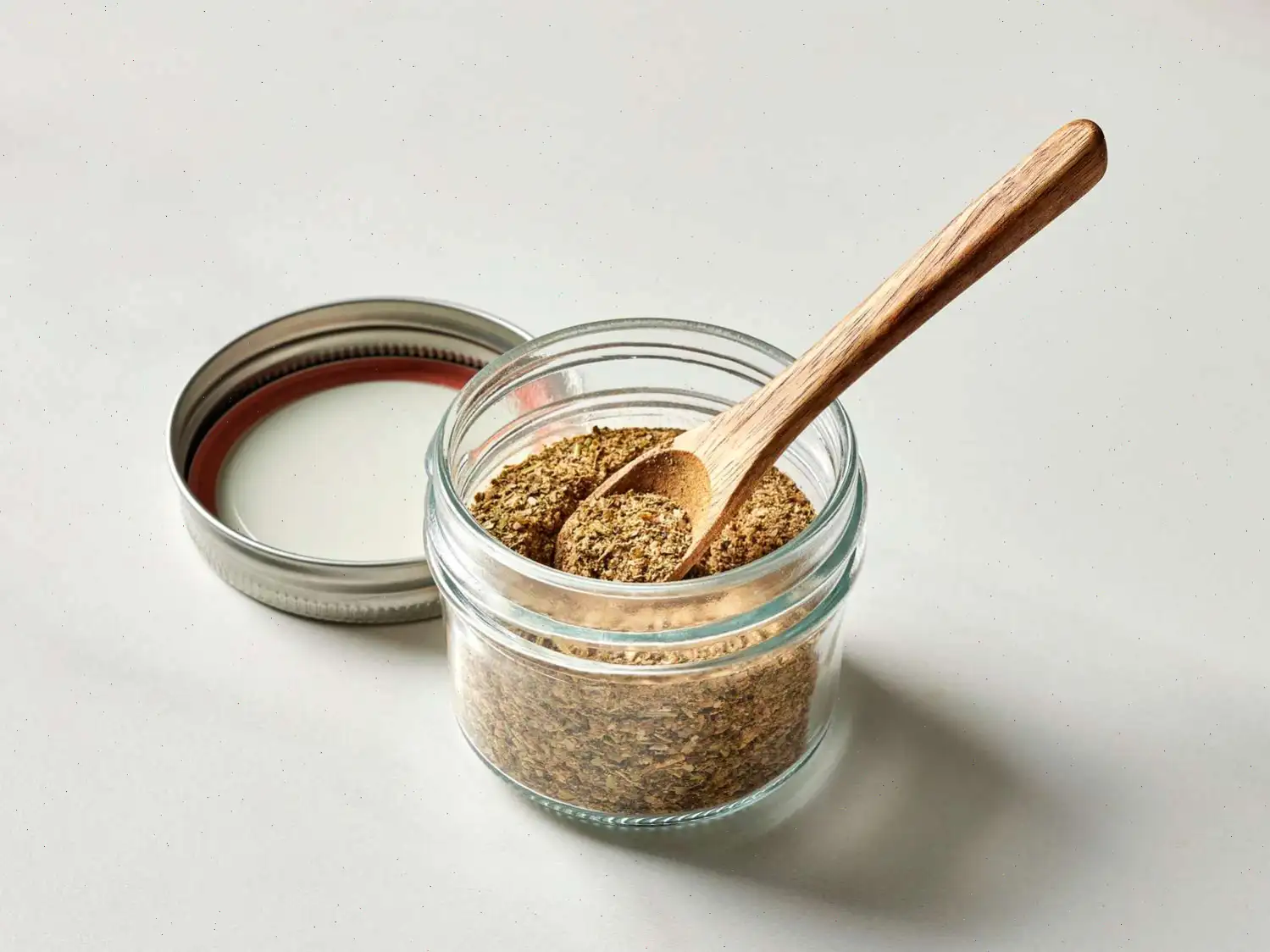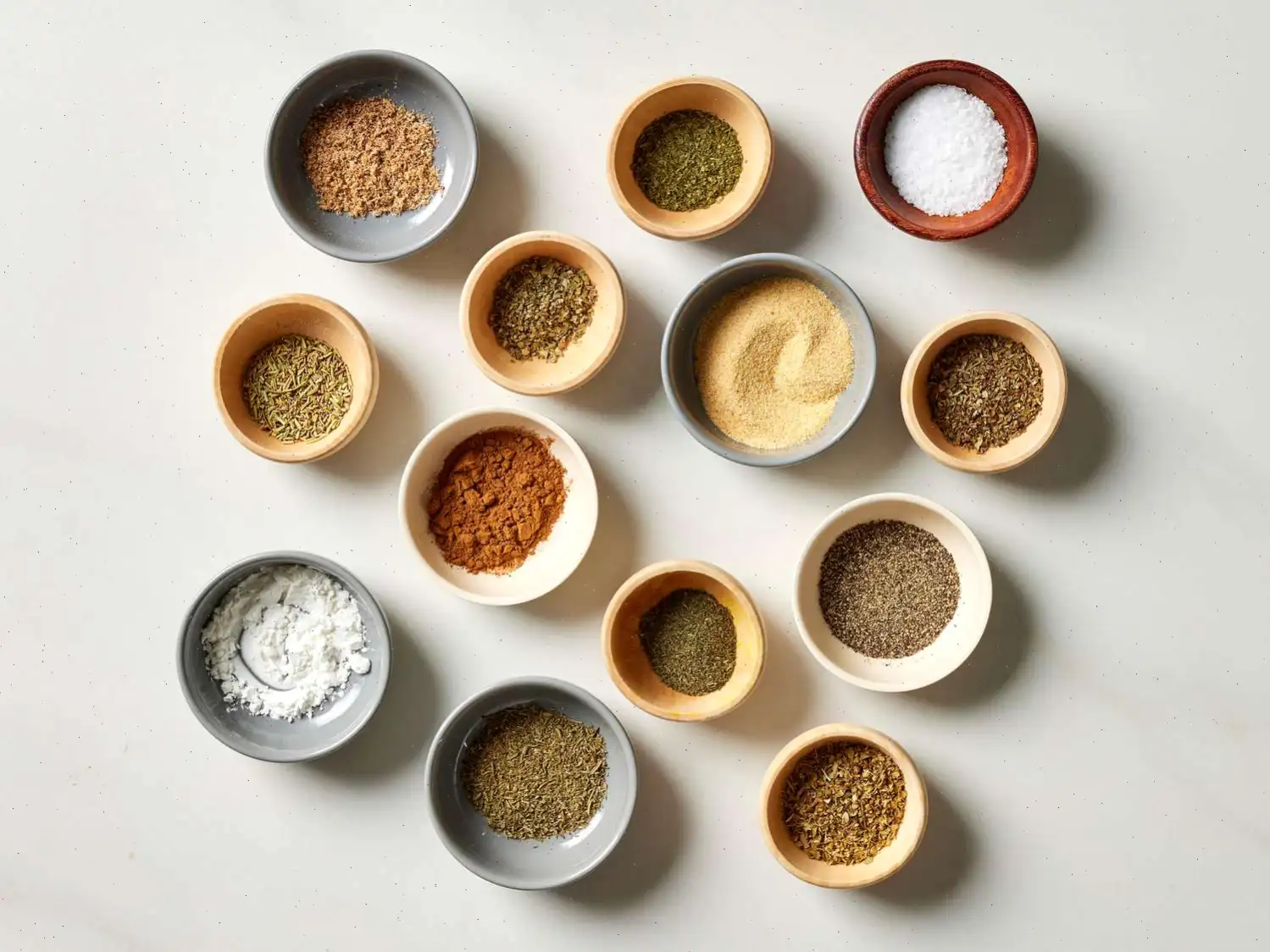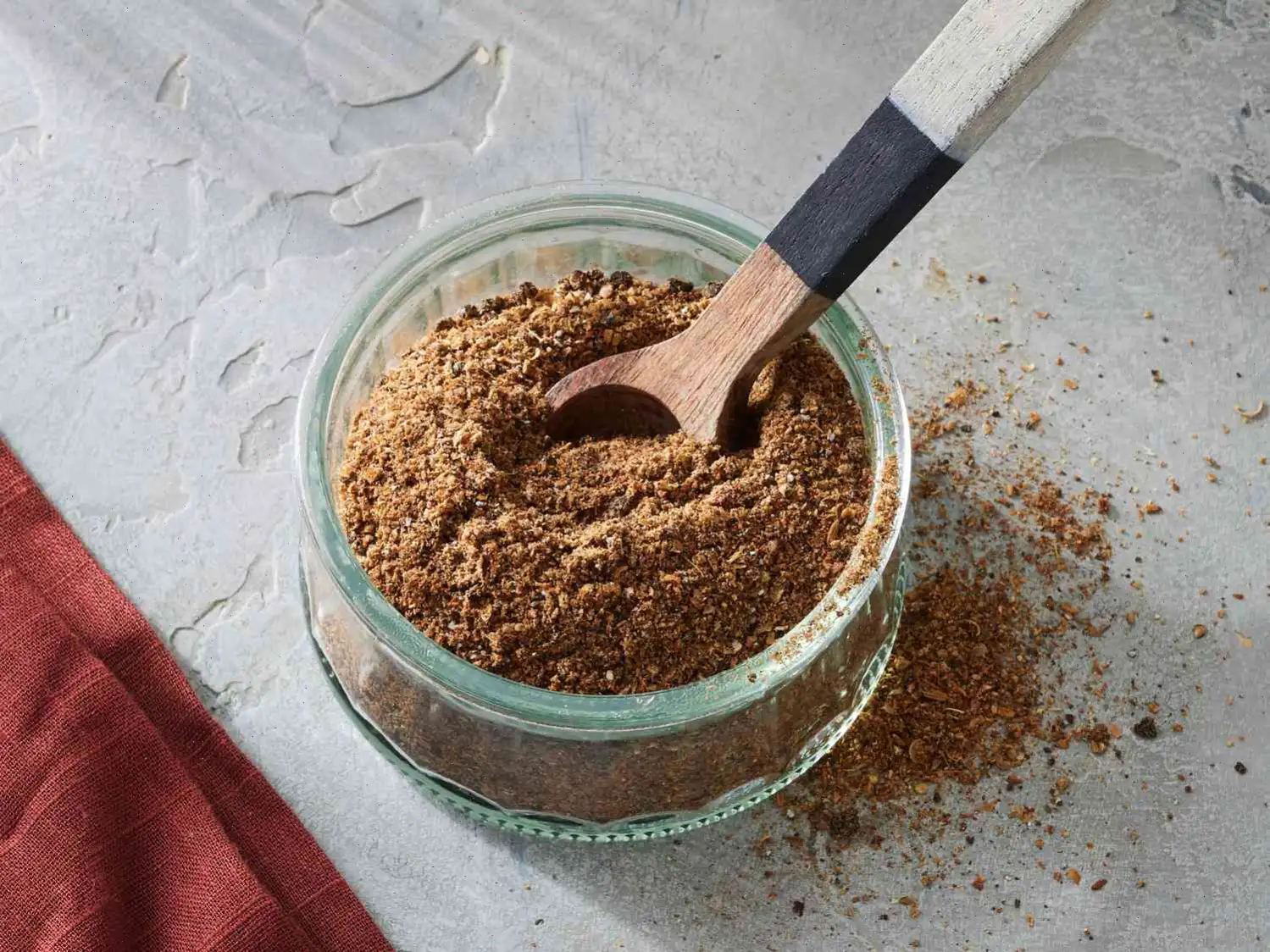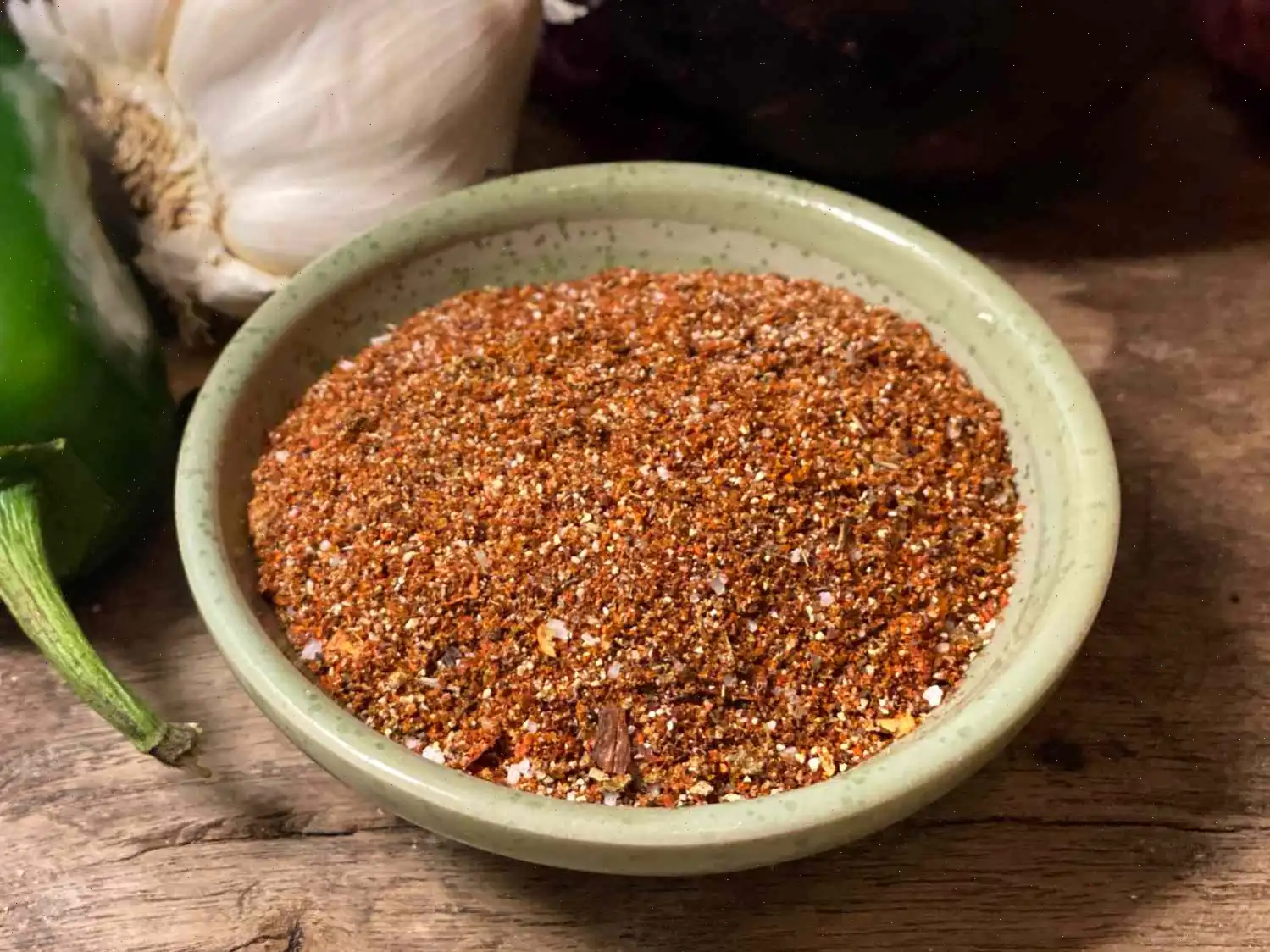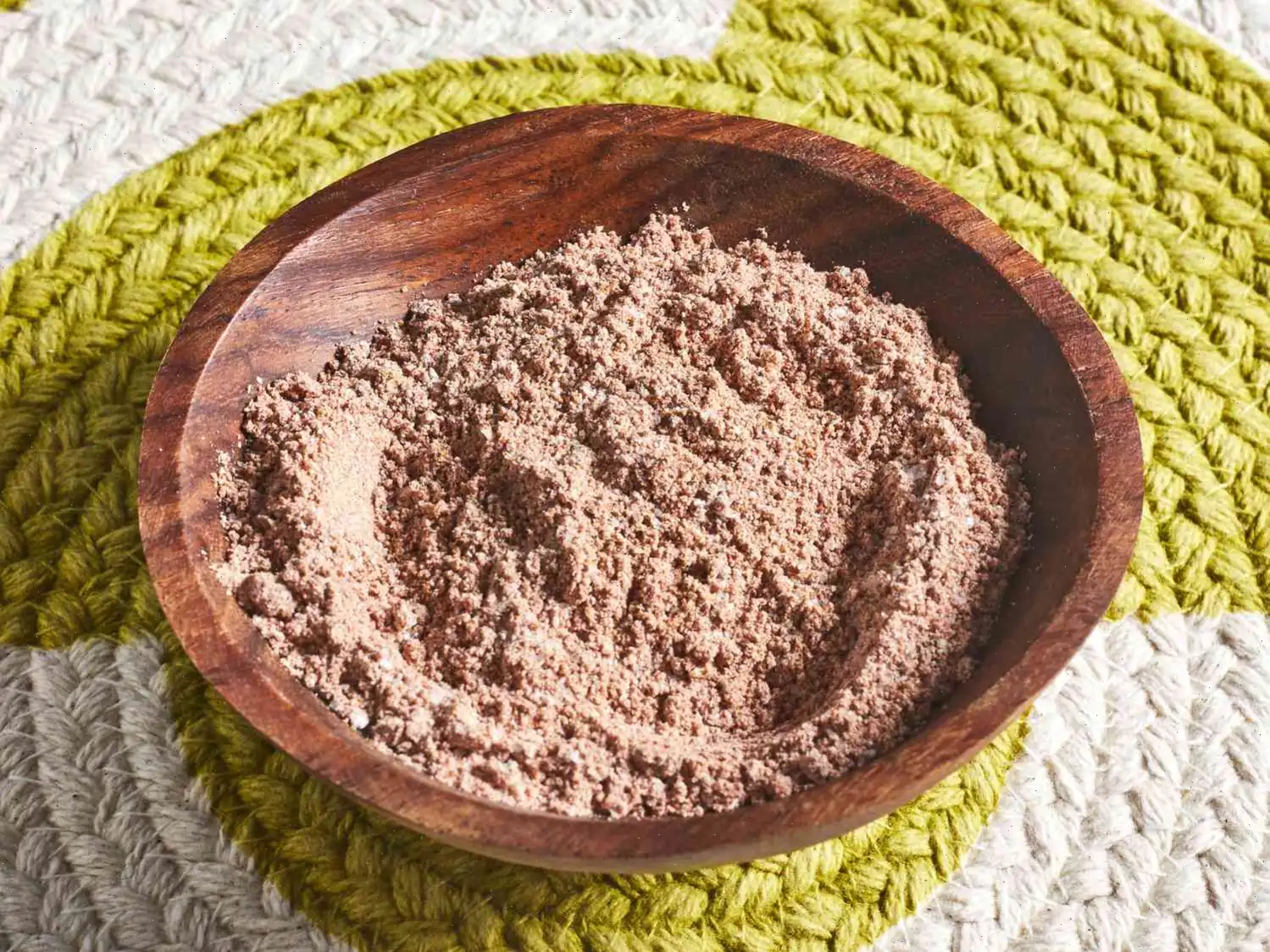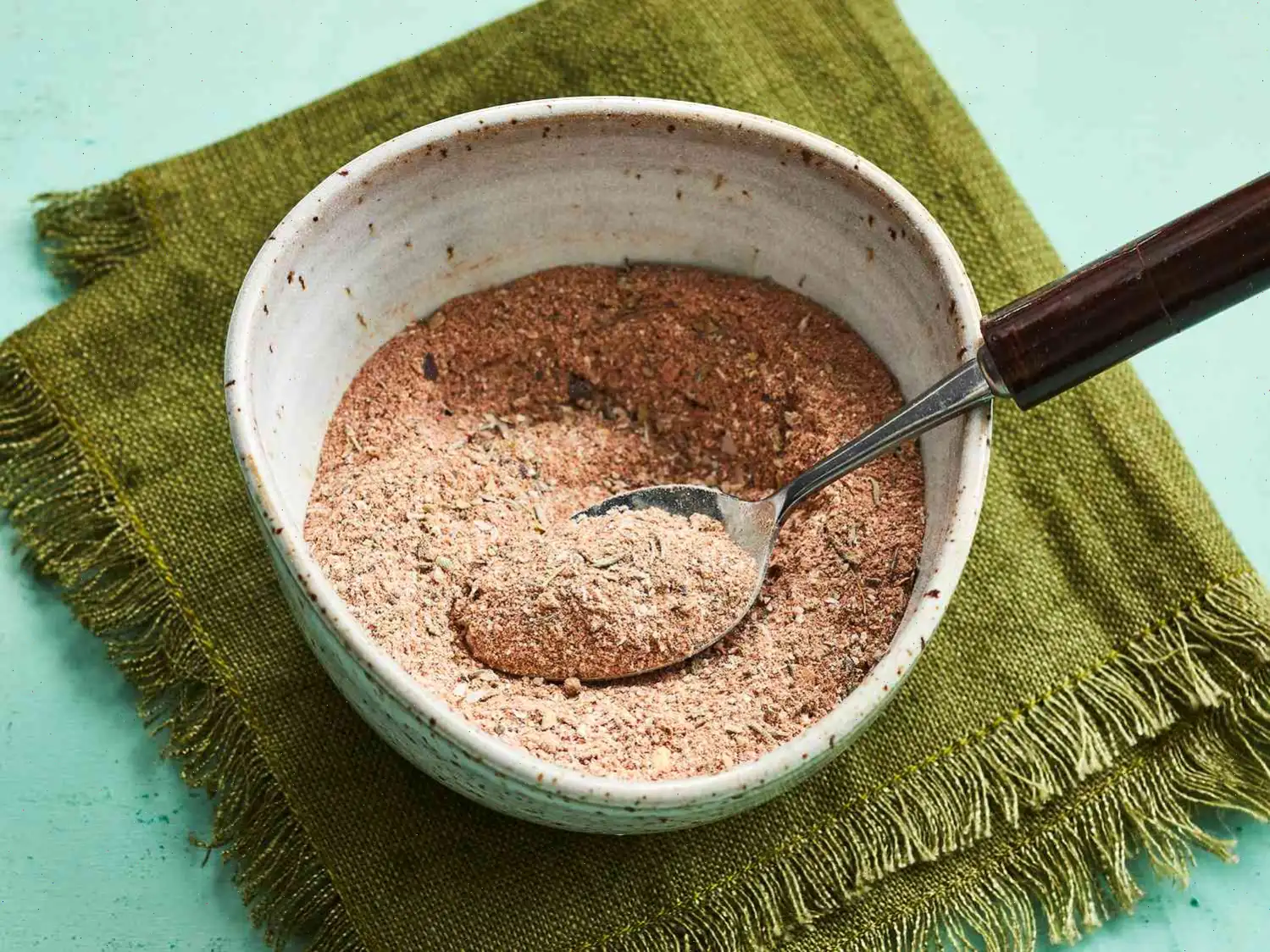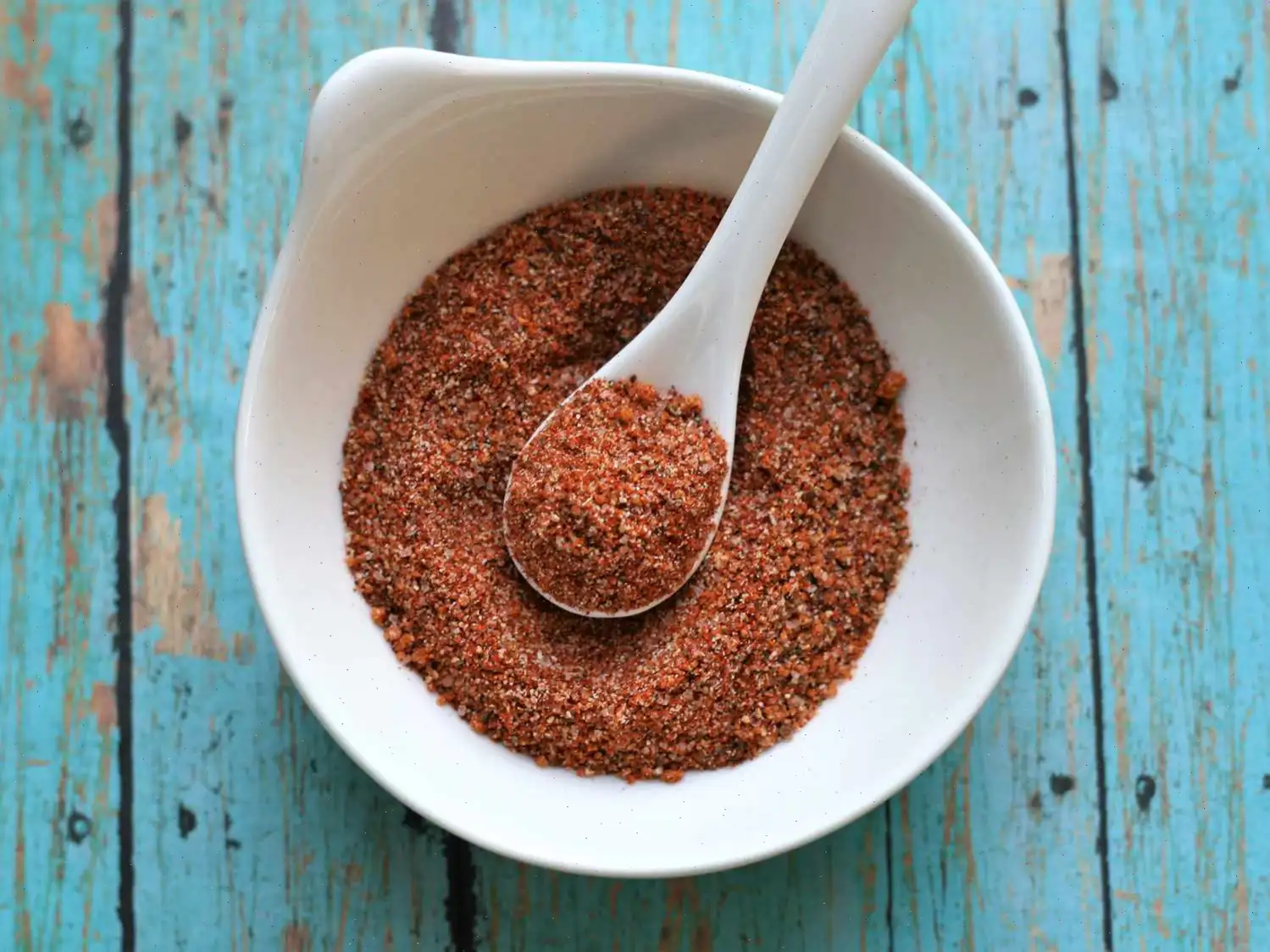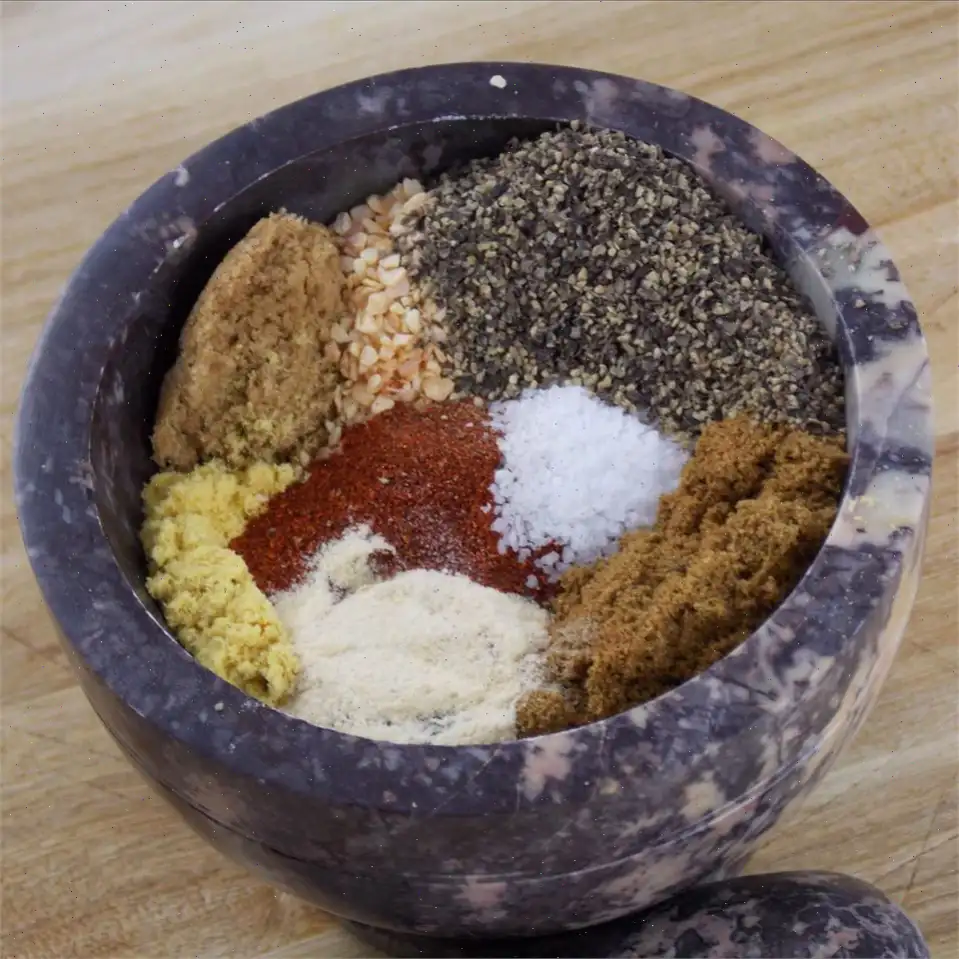
Greek Seasoning Blend Recipe
Ingredients
This recipe was developed at its original yield. Ingredient amounts are automatically adjusted, but cooking times and steps remain unchanged. Note that not all recipes scale perfectly.
- 2 teaspoons salt
- 2 teaspoons garlic powder
- 2 teaspoons dried basil
- 2 teaspoons dried Greek oregano
- 1 teaspoon ground cinnamon
- 1 teaspoon ground black pepper
- 1 teaspoon dried parsley
- 1 teaspoon dried rosemary, minced
- 1 teaspoon dried dill weed
- 1 teaspoon dried marjoram
- 1 teaspoon cornstarch
- teaspoon ground thyme
- teaspoon ground nutmeg
Directions
Step 1: Gather all the ingredients.
Step 2: In a small bowl, combine salt, garlic powder, basil, oregano, cinnamon, black pepper, parsley, rosemary, dill, marjoram, cornstarch, thyme, and nutmeg.
Step 3: Mix the ingredients thoroughly to ensure even distribution.
Step 4: Once mixed, transfer the spice blend into an airtight for storage.
Recipe Tip
For a finer texture, you can blend the spices in a spice grinder before storing.
Nutrition Facts (per serving)
| Nutrition Information | Per Serving |
|---|---|
| Calories | 9 |
| Total Fat | 0g |
| Sodium | 583mg |
| Total Carbohydrate | 2g |
| Dietary Fiber | 1g |
| Total Sugars | 0g |
| Protein | 0g |
| Vitamin C | 1mg |
| Calcium | 25mg |
| Iron | 1mg |
| Potassium | 37mg |
* Percent Daily Values are based on a 2,000 calorie diet. Your daily values may be higher or lower depending on your calorie needs.
** Nutrient information is not available for all ingredients. Amount is based on available nutrient data.
If you are following a medically restrictive diet, please consult your doctor or registered dietitian before preparing this recipe for personal consumption.
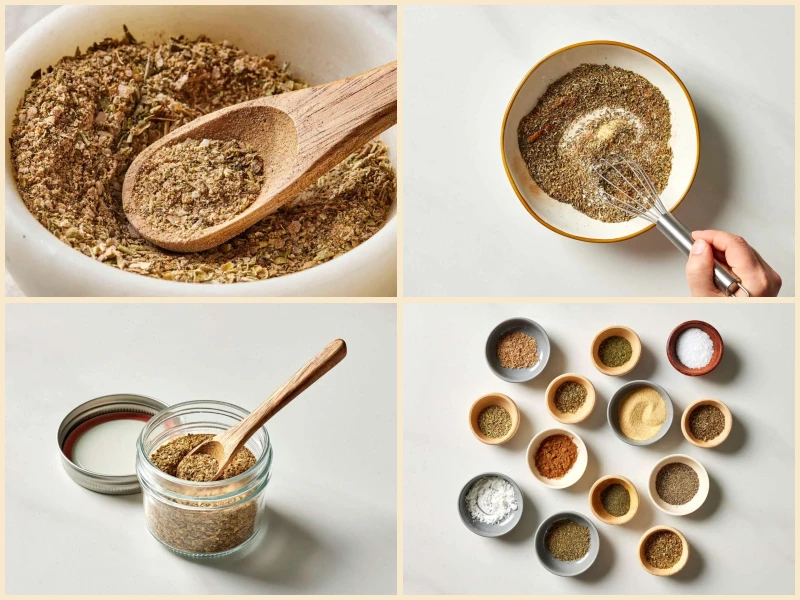

By Misty Jane Pilgrim
History of Greek Seasoning Blend
The use of seasoning blends in Greek cuisine dates back thousands of years. Ancient Greeks were known for their rich culinary tradition, which emphasized the use of fresh herbs and spices. Oregano, thyme, rosemary, and dill were common ingredients in Greek cooking due to the abundant growth of these plants in the Mediterranean climate. The modern Greek seasoning blend, as we know it today, is a reflection of this deep-rooted tradition, with its combination of herbs and spices often used to enhance meats, vegetables, and grilled dishes. The blend has evolved over time, incorporating regional influences and local preferences, but its essence remains true to Greek culinary heritage.
Regional Variations of Greek Seasoning
Greek cuisine varies by region, and so do the seasoning blends. The classic Greek seasoning you find in many recipesmade with oregano, rosemary, garlic, and thymeis widespread across the country, but in certain regions, such as the islands, you might encounter slightly different blends. For example, some islands use a higher proportion of dill and marjoram due to their local popularity. On the mainland, you might find more pronounced use of bay leaves and basil. The diversity in Greek seasoning blends reflects the agricultural and cultural richness of the different Greek regions, each contributing its own unique twist to the Mediterranean flavors.
How Greek Seasoning Differs from Similar Blends
While Greek seasoning shares many similarities with other Mediterranean spice mixes, it stands out because of its specific emphasis on herbs like oregano, rosemary, and thyme. These herbs are iconic in Greek cooking and lend a fresh, aromatic profile that distinguishes it from other blends such as Italian seasoning or Za'atar. Italian seasoning, for instance, tends to emphasize basil and marjoram, whereas Za'atar includes sumac, sesame seeds, and thyme, giving it a tangy, nutty flavor. Greek seasoning, on the other hand, has a milder yet heartier flavor profile, making it incredibly versatile in both meat and vegetarian dishes. The addition of cinnamon and nutmeg in some variations further sets it apart, bringing a slight warmth to the blend.
Where Greek Seasoning is Typically Used
Greek seasoning is commonly used to enhance the flavors of grilled meats, especially lamb, chicken, and pork. It's also a key ingredient in dishes like souvlaki, gyros, and moussaka. In addition, this blend pairs wonderfully with roasted vegetables, particularly potatoes, eggplants, and tomatoes. It's often sprinkled on salads, especially Greek salad, where it complements the tangy feta and olives. The blend is also popular in dips like tzatziki and hummus, adding a depth of flavor that makes these dips even more delicious. Whether you're grilling, roasting, or simply tossing with fresh ingredients, Greek seasoning is a go-to for infusing dishes with Mediterranean flair.
Interesting Facts about Greek Seasoning
- Oregano, one of the primary herbs in Greek seasoning, was considered a symbol of joy and happiness in ancient Greece. It was often used in wedding bouquets to bring good fortune to newlyweds.
- Greek seasoning blends are often made in small batches to preserve the freshness of the herbs and spices. This makes homemade Greek seasoning far superior to pre-made store versions, which can lose their potency over time.
- The combination of cinnamon and nutmeg in some Greek seasoning blends adds a surprising but welcome sweetness that balances the savory elements, creating a unique and aromatic taste experience.
- Greek seasoning is not only popular in Greece but has become a beloved spice blend around the world. Its used globally in various international cuisines that draw inspiration from Mediterranean flavors.
FAQ about Greek Seasoning Blend Recipe
Comments
allison125
10/06/2025 01:52:54 PM
We use a LOT of Cavender's in this house, and this seasoning blend is just as good-- in fact, it's better! Per the optional instructions, I blended the mix into a fine powder (using a food processor). Freshly blending the dried herbs and spices in small batches makes for a wonderfully pungent and flavorful seasoning for just about anything. I considered making a large batch of it, but I like the idea of making the suggested amount as needed; it'll last about a week in our kitchen, and it's totally worth making a new batch every few days in order to get that "just ground" flavor. I used this recipe as a seasoning for grilled chicken breasts today, and the flavor was fantastic. I'm fairly confident we won't be buying the big "C" again any time soon. Thanks for a great recipe!
PlzMidHomeCook
05/10/2020 02:36:15 AM
Made it twice. The first time I followed the recipe exactly, and blended everything in a coffee grinder. It was alright, but similar to other reviews I felt the cinn and nutmeg were too overpowering and I think I blended everything too much. The second attempt was outstanding, and very close to the original in the yellow and red can. Swap 1 tsp of salt for 1 of msg. Reduce cinn to 1/4 tsp. Eliminate nutmeg. Don't blend any of the spices, except for the crushed BP. Blend all the herbs and BP, starting with rosemary and BP. Blend the herbs lightly, you don't want clouds of herb dust.
alan_marks59
07/25/2018 10:23:12 PM
This is an absolute gem! I combined everything, then ran it through my spice grinder until it was a uniform powder. Used it in a gyros loaf and it was brilliant.
caseyfamily89
01/05/2022 08:23:30 PM
The change I made was to omit the cinnamon, the cornstarch was a great addition. Used this seasoning blend to make chicken gyros.
Sharon Taylor
08/18/2024 11:54:01 PM
Can’t believe I waited so long to try it!
lizby
08/04/2016 09:45:26 PM
I love this stuff! I make ground beef/lamb kebabs by making a long skinny patty around the skewers and rolling in the seasoning mix. So good! Also great on roasted chicken thighs/drumsticks! I make it with tablespoons instead of teaspoons, and measure straight into a jar, screw the lid on and give it a shake to mix!
SweetOnion2469
03/02/2025 04:11:37 PM
The ONLY change: 1. I halved the cinnamon 2. Reduced the nutmeg to a pinch
Mike E
04/21/2024 06:37:59 PM
Cost Savings I had to sub the Marjoram and Sage and Thyme with 2 tsp of Herb de Provenance spice blend. Great mixture and a staple in my pantry.
elctrkhed
09/05/2024 08:33:38 PM
This is a great great seasoning recipe. I however don't like too much saltiness so if you're the same, use half the salt. My compliments to the poster!
PyroVip
01/01/2024 09:24:46 PM
I make this spice recipe all the time, have been for over think 5 years going strong, I make 2 batches one with salt and one without, it is natural. A great receipe I recommend many to use ...Thank you
Helen
10/10/2017 10:51:25 PM
OMG this was awesome! followed the recipe but without the cinnamon and nutmeg - persona preference. ground it up in a mortar/pestle. Marinated presliced "sirloin steak for stir fry" at room temp for 1 hour before a quick stir fry. served with tazicki. Excellent!!
MrsNotley
03/23/2025 11:04:56 PM
I love a Greek seasoning blend on Chicken, Pork and roasted or grilled vegetables. In the past I ave always bought a premade blend from the store, but now i just keep this blend in a mason jar and use it all the time.
Trish-the-Dish
07/23/2024 03:16:57 AM
Used on another recipe on this site, Greek-Inspired Seared Pork Chops. It was very good, I will make this blend again in the future.
Ashley Young
07/01/2024 02:24:43 PM
I love how minimal the ingredients are.
Sharon Adams
05/08/2024 09:41:00 PM
I’m obsessed with this 😱
Elizabeth Daniels
04/18/2024 02:12:51 AM
I just blended a batch of this seasoning as I'm caramelizing onions for a one pan dish with chopped meat from fresh rotisserie chicken. I used cilantro and lemon crystals and sage in place of dill weed snd marjoram spices.I'm only using half of the chicken, so how much seasoning do I use at a time?
lutzflcat
02/01/2024 06:23:41 PM
I needed Greek Seasoning for a recipe, stopped at two stores, neither of which had it, and I wasn’t about to go on a road trip to find it. Granted, there are a lot of bottles to pull out of the pantry, but these ingredients are always in my pantry (but regular oregano, not Greek), so I saved some $$$$ by mixing up my own. I scaled the recipe in half just to give it a try, and it filled my spice bottle about half full. It’s nice to be able to mix up a fresh batch rather than having a bottle sit on the shelf for a long time losing flavor, and it turned out satisfactory.
VioletDate4166
08/13/2023 02:19:32 AM
So good! Sprinkled on both sides of chicken breast cooked with juice of a half lemon and olive oil!
Jim Sears
07/20/2022 08:07:16 PM
I normally use a Greek dry rub on my beef cuts in a smoker, that I buy online. But it's expensive, so I thought I'd try to save a buck and make my own. This rub is OK, but nothing like what I'm used to. It seems to be much sweeter and with very little "tang" to it. Maybe it's the cinnamon and/or nutmeg. I probably won't be using it again.
rodandbeckyshuster
10/19/2021 10:43:57 PM
Wow the worst greek seasoning I've ever had ruins my whole batch had to throw it all away absolutely terrible you really need to get rid of that cinnamon and nutmeg in their yuck I will never make that again nor will I ever recommend it


